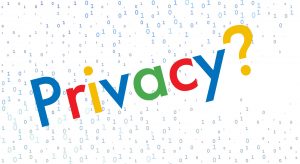OVERVIEW:
 Most of us don’t ever question Google. We type in our search, hour after hour, day after day, week after week, and we trust the answers Google gives us. Absolutely every time we want to know something, we Google it. If we stop to think of a big and powerful business, we think of Google. And even if we want to know the history of Google, we just Google it. But what about all those other search engines? Why would someone ever want to use another search engine? Is it possible that Google really spies on me or my search history? Does Google really know everything about me?
Most of us don’t ever question Google. We type in our search, hour after hour, day after day, week after week, and we trust the answers Google gives us. Absolutely every time we want to know something, we Google it. If we stop to think of a big and powerful business, we think of Google. And even if we want to know the history of Google, we just Google it. But what about all those other search engines? Why would someone ever want to use another search engine? Is it possible that Google really spies on me or my search history? Does Google really know everything about me?
The answers to some of these questions may surprise you.
LEARNING GOAL #1: The Basics of Web History
Students will understand how the Internet evolved from a classified government research project into a world wide resource with the help of highly educated teachers and students.
PART 1: So You Think You Can Research?
Read MoreChances are, you probably believe you can find anything on the World Wide Web. You might even say that searching is super easy. But maybe not. Let’s see if you can find ALL the answers to the following five questions using any search engine that you feel comfortable (Google, Bing, Yahoo, etc), but without asking your neighbor for help.
To record your answers, open a random Notepad file and make a list, 1-5, plus a bonus. There are only five questions. Answer as many as you can in 10 minutes.
- Question 1
In 2014, Anthony Doerr wrote a book that was published by Scribner. The book was called All the Light We Cannot See. What were the five cities listed under the publisher on the title page? - Question 2
On May 14, 2015, SECME Club at Milwee announced its winners on the school website. What was the name of the first place team from Milwee and what were the names of the three students on that team? - Question 3
On the first Monday of January 2017, our cafeteria at Milwee offered what kind of cereal with a cheese stick? - Question 4
On their last Christmas in the White House, President Obama and his wife gave a public address to the nation. What color dress was the First Lady wearing? - Question 5
On June 18, 2003, the Parker Pioneer had a large advertisement on the third page saying that a company was going out of business. What was the name of the company and how many years had they been in business? - BONUS
What are the top five Google search trends of the day so far? In other words, what have people been “Googling” the most today?
PART 2: Behind the Search Box
Read MoreTopic #1 – Google Reigns Over All
 Back when Google was just an idea, two graduate students by the names of Larry Page and Sergey Brin had been sitting in a room at Stanford University with a bunch of other student engineers thinking of a new name for their search engine. Backrub wasn’t very catchy, so someone in the room thought of a big number called a googol (a 1 with 100 zeros behind it). But when one of the students went to buy the domain for googol.com, they misspelled the word and got stuck with google.com. That meeting took place on September 15, 1997. And within one year, Google was already getting 500,000 searches per day. Within two years, Google had the largest index of web page keywords in the world. Within three years, Google had become the most popular search engine in the world. And there was never any turning back. Today, Google manages billions and billions of searches per day. Take a look.
Back when Google was just an idea, two graduate students by the names of Larry Page and Sergey Brin had been sitting in a room at Stanford University with a bunch of other student engineers thinking of a new name for their search engine. Backrub wasn’t very catchy, so someone in the room thought of a big number called a googol (a 1 with 100 zeros behind it). But when one of the students went to buy the domain for googol.com, they misspelled the word and got stuck with google.com. That meeting took place on September 15, 1997. And within one year, Google was already getting 500,000 searches per day. Within two years, Google had the largest index of web page keywords in the world. Within three years, Google had become the most popular search engine in the world. And there was never any turning back. Today, Google manages billions and billions of searches per day. Take a look.
Topic #2 – Can Google Destroy a Reputation?
Topic #3 – What Our Searching Says About Us
 We often think about privacy as having to do with the most personal details that we keep to ourselves and those closest to us. Social Security Numbers. License numbers. Addresses. Phone numbers. But let’s imagine someone appeared at your front door when you got home from school and said this to you:
We often think about privacy as having to do with the most personal details that we keep to ourselves and those closest to us. Social Security Numbers. License numbers. Addresses. Phone numbers. But let’s imagine someone appeared at your front door when you got home from school and said this to you:
“For the past seven days, I have been tracking your searches on Google. ALL of them. I know about very single thing you have looked up on your phone, on your laptop, and on your tablet. And tomorrow, I will be sharing a report of your search history with the school administration. This will now be a permanent part of your middle school record.”
Before we go any further, let’s just think about this for a second. What would that report say about us? About you? Would it reveal anything about your family? About your friends? About the things you like to do? About the things you regret? Without talking, take one minute to think back through at least 5 things you searched for in the past 24 hours. Make a mental list and consider what all those things say about you. Honestly. Would they say you’re just a really good student? Or would they say something else? Something you would never want to have on file in a permanent record?
The scenario above is not real, of course. No one is going to show up at your house and say that. But what IS real is that even if no one comes to your door, Google still has a permanent record of everything you have EVER searched for on ANY computer you are logged into at ANY point in your life up to this point. In other words, they have more information about you than seven days. They have information about you from eight, nine, or even ten years ago that you already forgot you searched.
“If we continue down this path, Google will know more about you than anyone else does, including you.”
Alexander Halavais (Search Engine Society, 2009, p.149)
Topic #4 – So How Important Is Your Privacy?
 At this point, the most important question is this: how secure is your information? How private is your search history? If someone suspects you of a crime, can the police contact Google and find out what kinds of information you’ve been looking up over the last year? Can the government spy on your browsing history and decide whether to start tracking your computer because of questionable searches? What if you run for president someday and a member of the other party wants to find dirt on you? Can they pay Google enough money to get access to years of your search history? The answer to most of these questions right now is no. There are limits to what people can know about you. But the rules are always changing and it’s very possible that something private today will not be private in 10 years. Think about that, then be careful what you search and how you search.
At this point, the most important question is this: how secure is your information? How private is your search history? If someone suspects you of a crime, can the police contact Google and find out what kinds of information you’ve been looking up over the last year? Can the government spy on your browsing history and decide whether to start tracking your computer because of questionable searches? What if you run for president someday and a member of the other party wants to find dirt on you? Can they pay Google enough money to get access to years of your search history? The answer to most of these questions right now is no. There are limits to what people can know about you. But the rules are always changing and it’s very possible that something private today will not be private in 10 years. Think about that, then be careful what you search and how you search.
Topic #5 – Better Ways to Search
Below is a collection of search tools that might have helped you to do better on the “So You Think You Can Research” activity at the beginning of this lesson.
- Google Trends
*Searching for popular topics and what others are searching*
(Bonus Question) - Google Book Search
*Searching for and within familiar and unfamiliar books*
(The Giver) - Google Newspapers
*Searching old article headings and pages as primary sources*
(Times-Union – 9/12/2001) - Google Translate
*Searching text languages that are unfamiliar* - Google Advanced Web Search
*Searching within specific sites or regions (narrow searches)*
(Class Website) - Google Image Advanced Search
*Searching legal images, appropriate images, and specific image types*
(Abstract Sunset)
PART 3: Fun with Google
Read MoreGoogle Ego Surfing
This is when you go to Google and search for your own name. You want to know if someone else more famous or more well known has your name. You might also want to know if the information about your name is good or bad. Try it.
Google Poetics
This is when you go to Google and start a search with something sort of poetic, but let the Google Auto Complete write the rest of your poem. For example, you might type “A Thousand Years Of” and get four possible sentences. Below are just a few ideas for getting started:
Where did I : Some monsters : My children : I was : Why does
The idea here is that you start writing either a question or a statement, but you don’t finish it. Instead, you let Google finish the poem. Try it.
Google Lock
This is when you go to Google and try to find a combination of keywords that only gives you ONE result. Most searches lead to thousands or even millions of results. So what combination of keywords would give you ONE result? This one is difficult, but we’ll try it for a minute.